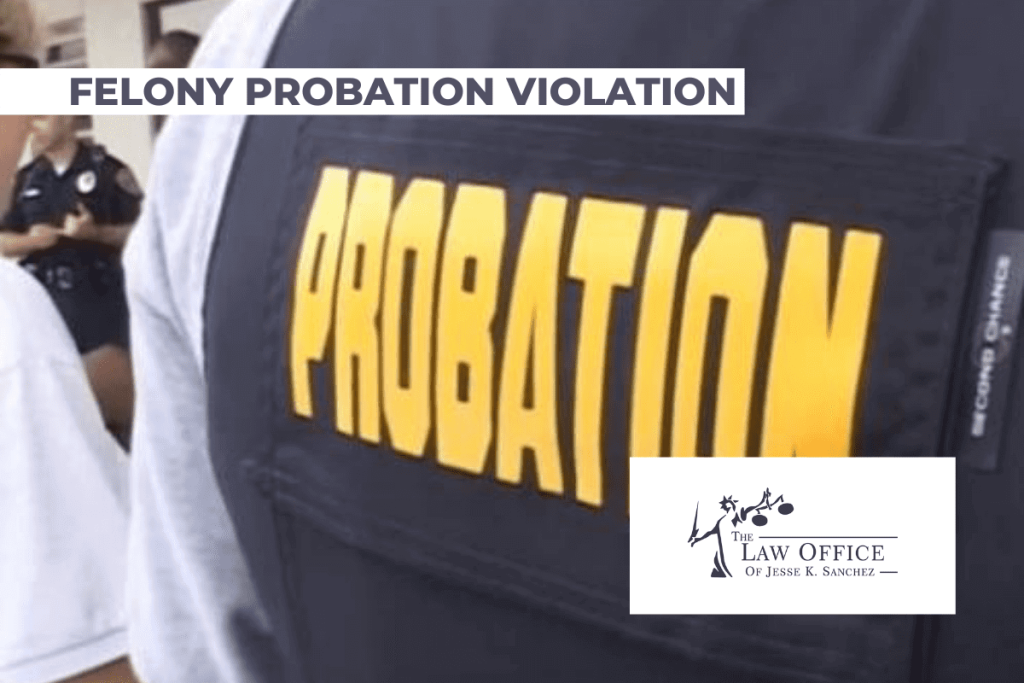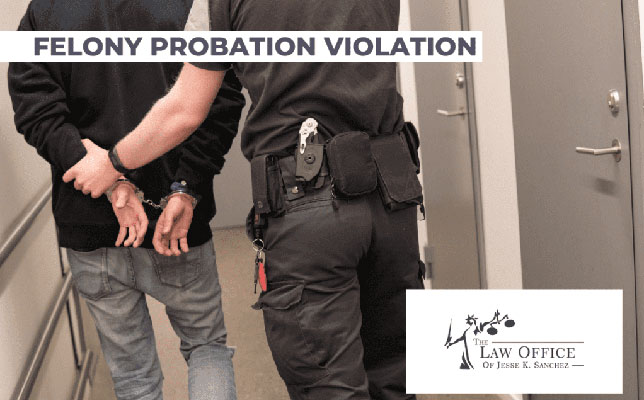Probation in criminal law refers to a period of supervised release from prison, arranged by the courts instead of serving a prison sentence. Probation can last for several months or for many years depending on the severity of the case. Probation is granted by judges when the accused is unable to meet conditions placed on him or her by the judge. While on probation for a felony, the accused is subject to rules laid out by the judge. He or she may not enter certain areas of society and may be subject to additional restrictions that are imposed by the judge. If you are on probation for a felony or a misdemeanor, call Indianapolis probation violation attorney Jesse K. Sanchez at (317) 721-9858 or email us at info@jksanchezlaw.com.
What is Probation?
Probation is a common practice in all states across the country. Many people who have been convicted of crimes have been sentenced to probation. Probation does not include a prison sentence and has different requirements than incarceration. A number of conditions may be placed on probation, ranging from house arrest to community service and supervision with the local police department. Probation is designed to help criminals change their ways of committing crimes and reduce the likelihood of repeat offense. Some states have a mandatory minimum sentence, if an individual is found guilty of a felony, in this instance they could be given felony probation.
Conditions of Felony Probation
Generally speaking, while on felony probation, offenders must adhere to strict terms and regulations and cannot be given more lenient terms than the courts want them to receive. When a person fails to obey the terms of probation, it said that they violated probation and there are felony violation probation violation consequences where the probationer can be sentenced to time served, community service or there entire back up time. Probationers are also prohibited from owning a gun, possessing any alcohol, and are prohibited from using drugs, including marijuana, in addition to other prohibited activities.
What is a Felony Probation?
A felony is an offense which carries a potential term of incarceration in excess of a year, anything less is considered a misdemeanor offense. Probation means the judge/court has decided to suspend the imposition of incarceration for whatever term is permitted for the underlying offense for a specific period of time on the condition that the convicted person conducts him or herself in a law-abiding fashion and successfully complies with other terms and conditions imposed by the court. The conditions of felony probation may be a combination of:
- Jail time
- Fines
- Restitution for damages
- Community service
Tasks or goals to be completed during the period of probation -to the satisfaction of the probation officer or court. Probation may also require the loss of certain legal rights that non-probationary persons would enjoy. Chief among these will be the loss of substantial privacy, you may be required to waive their Fourth Amendment rights. This means that they must submit to:
- Warrantless searches by law enforcement
- Take drug tests
- Prohibition from engaging in particular activities
- Prohibition from congregating with certain people, primarily other individuals on felony probation
The monitoring of probationary performance or compliance can be formal i.e., reporting to a probation officer or informal, requiring no formal reporting or monitoring.

In a nutshell, felony probation is a contract between the individual placed on probation and the court. If the probationer successfully completes all conditions of felony probation satisfactorily for the probation period, then is imposed s/he gets to stay out of prison. A substantial probation violation or repeated violation of the term or terms of probation may result in the revocation of probation and being sentenced to prison for the term prescribed by law.
A 1st Violation of Felony Probation
et’s first start with a basic understanding of what felony probation is and then examine the range of possibilities that might befall you upon a “1st violation of felony probation”. Remember that every county Keep in mind that each jurisdiction has its own practices and procedures and one should always consult with knowledgeable counsel for advice based upon one’s case specific facts and allegations.
Do You Have a Felony Probation Violation?
Call (317) 721-9858
What happens upon a first felony probation violation depends on the severity of violation. A minor probation violation, such as something as minor as a curfew violation or a late payment of a fine or missed restitution payment due to being financially incapable is more than likely not to receive a major felony violation probation consequence. By getting arrested and charged for a new criminal offense, no matter how small, or associating on a regular basis with persons forbidden to you by the court or probation officer could result in revocation and re-incarceration for the balance of time you could originally have been sentenced.
If Probation is Revoked
In the event formal probation revocation proceedings are initiated against the probationer by the probation department, they are entitled to a probation violation attorney and they are given the opportunity to present evidence as to why the claim of non-compliance or breach is false or insubstantial and does not warrant further sanctions by the court. This amounts to a mini-trial but proof is not required to be beyond a reasonable doubt as in a full blown trial. The outcome of a probation violation hearing is based on the preponderance of the evidence. Meaning, Under the preponderance standard, the burden of proof is met when the party with the burden convinces the fact finder that there is a greater than 50% chance that the claim is true.
If a Felony Probation Violation is Found to be True
If a felony probation violation is found to be true and substantial the court may impose the full sentence permitted by law or anything less. Because the consequences for having violated probation can be , allegations of violation should be taken seriously in all cases and one should prepare to mitigate non-compliance in one area with evidence of success in others. It may also modify, delete or re-instate probation on the same or different conditions in light of the new information. In layman terms, anything from a slap on the wrist to the sky falling upon one’s head. Ultimately, it depends on the individual facts and circumstances of the alleged violation and the negotiating skill of one’s counsel.
Felony Probation Violation is Serious
If you violate felony probation, you need to take the situation very seriously, because it could mean a prison sentence. Call our office for a legal consultation and discuss the options available to you as a viable defense. We are available 24/7/365 at (317) 721-9858.




